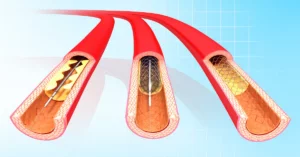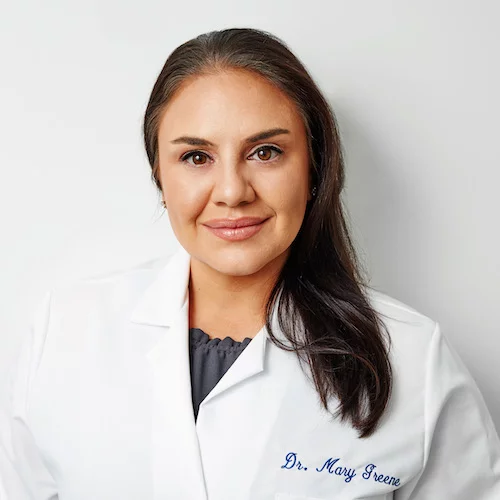
Vertigo is a symptom which involves feelings of dizziness, as though your surroundings are spinning or moving. It can vary in intensity and duration, in some cases being very brief and hardly noticeable while in more severe instances it can be debilitating and last days. It may also be accompanied by a number of other symptoms such as blurred vision, faintness, and nausea.
While frequently resulting from an inner ear disorder or a condition such as migraines or Meniere’s disease, vertigo can also be an indication that you are not getting sufficient blood supply throughout the body. Bouts of dizziness may be related to cardiovascular conditions that include heart disease, arteriosclerosis, angina pectoris, or arrhythmia. Vertigo can also be a side effect of some medications, including antibiotics and anti-inflammatories.
The primary symptom of vertigo is the sensation that the world around you is spinning or moving, accompanied by loss of balance, difficulty standing or walking, and faintness or lightheadedness. Vertigo may also be marked by headache, nausea, difficult or slurred speech, sweating, and weakness. It may be mild or severe, and can last anywhere from a few seconds to several days.
 You are at higher risk of vertigo if there is an issue negatively affecting your circulatory system, such as diabetes, narrowed blood vessels, arrhythmia, or if you have had a heart attack or stroke. Vertigo is also commonly associated with conditions such as Meniere’s disease and other inner ear issues. It can sometimes occur as a result of neurological disorders like multiple sclerosis (MS), or in rare cases from a serious issue like a brain tumor. Vertigo is more common in women than men, and is most likely to occur in older patients.
You are at higher risk of vertigo if there is an issue negatively affecting your circulatory system, such as diabetes, narrowed blood vessels, arrhythmia, or if you have had a heart attack or stroke. Vertigo is also commonly associated with conditions such as Meniere’s disease and other inner ear issues. It can sometimes occur as a result of neurological disorders like multiple sclerosis (MS), or in rare cases from a serious issue like a brain tumor. Vertigo is more common in women than men, and is most likely to occur in older patients.
Vertigo is a symptom rather than a disease. You should discuss the issue with your doctor, who will then perform a physical examination, review your medical history, and discuss any accompanying symptoms such as ringing ears, headache, or numbness, which may indicate the specific nature of the problem. Blood tests and other diagnostic procedures may be performed to identify any underlying cardiovascular disorders. An MRI or CT scan may also be taken.
In many cases, spells of vertigo will clear up on their own without any specific treatment. There are medications which can be taken to help ease the side effects of vertigo, such as dizziness and nausea. If vertigo is the result of an underlying heart condition, your cardiologist will work with you to find a treatment plan that improves your heart health and circulation to reduce your risk of further dizzy spells.
Prevention of vertigo depends on the root cause, but some of the primary measures you can take include eating a healthy diet and getting regular exercise, taking care to avoid head injuries, and following your treatment plan for underlying conditions such as Meniere’s disease or MS.
While vertigo will usually clear up by itself, it may also linger for several days, making it difficult to live a normal life and complete simple tasks. It’s important to get the root cause of your vertigo diagnosed as soon as possible in case the underlying condition is severe or life-threatening. Heart conditions which are related to vertigo can increase in seriousness without treatment, as can brain tumors or neurological conditions. If left untreated, some of these may even be fatal.
Vertigo can be related to multiple conditions affecting the heart and cardiovascular system, including heart disease, high blood pressure, stroke, heart attack, and diabetes.


 You are at higher risk of vertigo if there is an issue negatively affecting your circulatory system, such as diabetes, narrowed blood vessels, arrhythmia, or if you have had a heart attack or stroke. Vertigo is also commonly associated with conditions such as Meniere’s disease and other inner ear issues. It can sometimes occur as a result of neurological disorders like multiple sclerosis (MS), or in rare cases from a serious issue like a brain tumor. Vertigo is more common in women than men, and is most likely to occur in older patients.
You are at higher risk of vertigo if there is an issue negatively affecting your circulatory system, such as diabetes, narrowed blood vessels, arrhythmia, or if you have had a heart attack or stroke. Vertigo is also commonly associated with conditions such as Meniere’s disease and other inner ear issues. It can sometimes occur as a result of neurological disorders like multiple sclerosis (MS), or in rare cases from a serious issue like a brain tumor. Vertigo is more common in women than men, and is most likely to occur in older patients.

